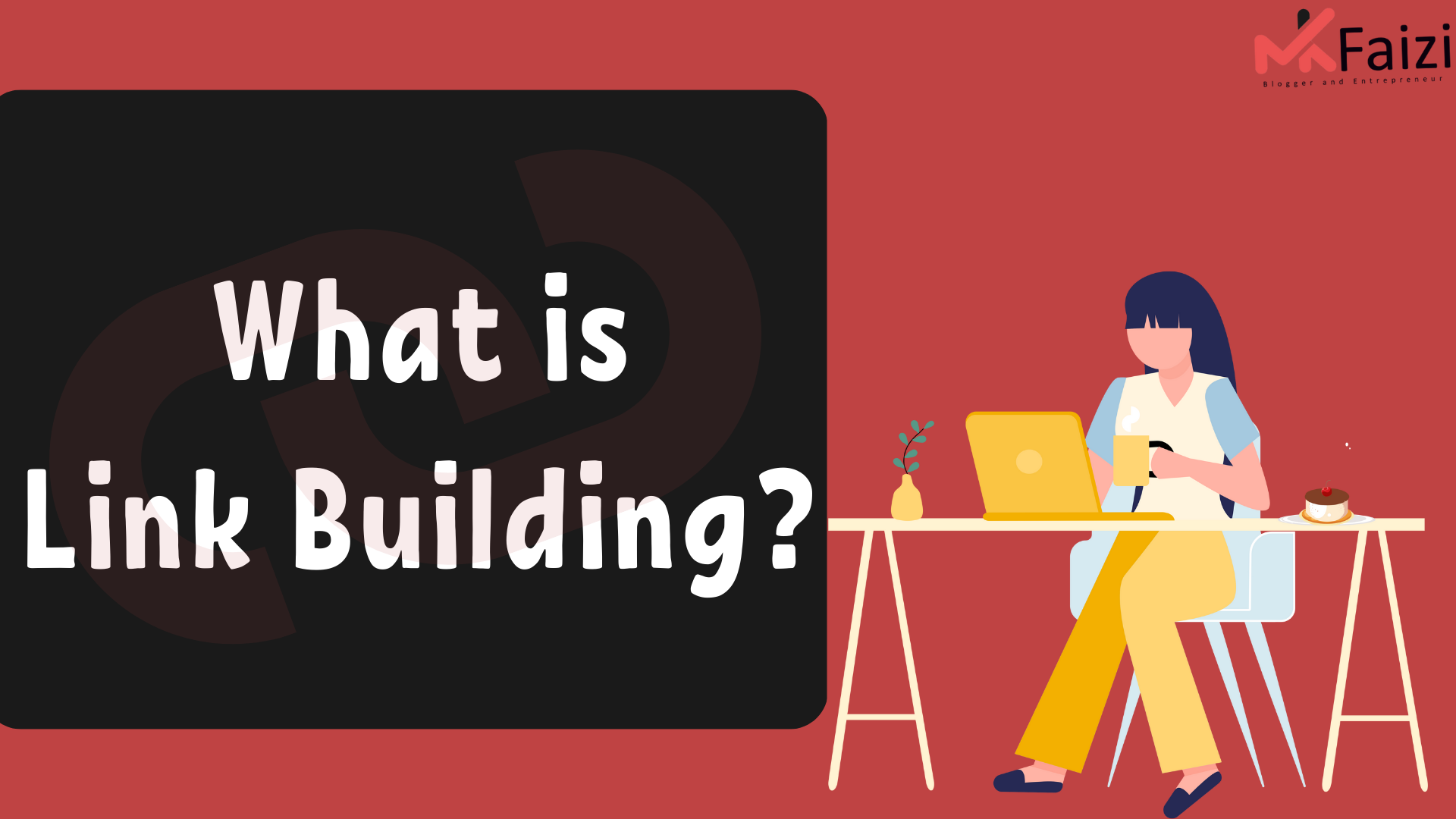In 2024 in SEO, one term that consistently holds a significant role is “link building.” As websites strive to enhance their online visibility, understanding the intricacies of link-building becomes crucial. This article aims to demystify link building, exploring what is link building?, its importance in SEO, and its multifaceted impact on digital marketing strategies.
What is Link Building? Understanding its Definition and Importance
Link building is the process of acquiring hyperlinks from other websites to your own. These hyperlinks, commonly known as backlinks, act as pathways that connect different web pages. It’s not just about quantity; the quality of these links matters too.
There are various types of backlinks:
- Natural Links:
Natural or organic links are the most desirable type of backlinks. These links are earned naturally without any direct effort from the website owner. They are typically a result of high-quality content, compelling products or services, or the overall credibility of the website. Natural links are considered more valuable by search engines as they indicate that other websites find your content valuable and worthy of referencing.
- Manual or Outreach Links:
Manual or outreach links are acquired through proactive efforts by the website owner. This involves reaching out to other websites, influencers, or bloggers to request a link. This process may include guest posting, influencer collaborations, or partnerships. Manual link building allows for more control over the types of links obtained and the anchor text used, but it requires active outreach and relationship-building.
- Self-Created Links:
Self-created links are those that website owners generate themselves. This includes links in forum signatures, comments on blogs, or directory submissions. While these links can be easy to create, they are often of lower quality and can be perceived as spammy by search engines if overused. Search engines may not give as much weight to self-created links compared to natural or manual links.
- Editorial Links:
Editorial links are links that are naturally embedded within the content by the website’s editor or author. These links are not influenced by the website owner and are usually based on the merit of the content. Editorial links are highly valued by search engines because they are seen as a genuine endorsement of the linked content.
- Nofollow and Dofollow Links:
Nofollow and dofollow are attributes assigned to links that signal to search engines whether or not to pass link equity. Dofollow links pass link equity, contributing to the authority of the linked page, while nofollow links do not. Websites may use the nofollow attribute to indicate that they don’t want to endorse or vouch for the linked content. Both types of links have their place in a natural link profile.
- Citation Links:
Citation links are mentions of a brand, product, or service without necessarily including a hyperlink. While these may not provide direct SEO benefits, they contribute to brand visibility and can indirectly influence search engine rankings. Citations are common in online business directories, press releases, and mentions in articles.
Understanding the different types of backlinks is crucial for developing a balanced and effective link building strategy. The goal is to acquire a diverse and natural link profile that reflects the credibility and authority of your website in the eyes of both users and search engines.
Link building in SEO is the dynamic practice of acquiring backlinks from authoritative and relevant sources, gaining votes of confidence from search engines, particularly Google. It addresses the question that many people have: What is link building in SEO?
Link building stands as a pivotal component within the realm of Types of Off-Page SEO, wielding significant influence in elevating website authority and visibility.
What is link building?, and why is it important to SEO? This question arises as some individuals want to understand not only the definition but also the significance of link building to SEO. The importance lies in its pivotal role in determining a website’s search engine ranking, with search engines considering backlinks as indicators of credibility and authority. A well-established link profile is crucial for ranking higher in search results and driving organic traffic.
How Can Link Building Improve Site Ranking?
Link building plays a crucial role in improving site ranking by enhancing its authority, credibility, and relevance in the eyes of search engines. Here’s how link building can positively impact site rankings:
- Authority and Trust: Search engines consider the number and quality of backlinks as a signal of a site’s authority and trustworthiness. When reputable websites link to your content, it indicates that your site is a reliable source, which can result in higher rankings.
- Relevance: Quality backlinks from relevant websites within your industry or niche strengthen the relevance of your site in the eyes of search engines. Google, for instance, values links that come from content related to your own, as it suggests your site is an authoritative source within that particular subject.
- Improved Crawling and Indexing: Backlinks serve as pathways for search engine crawlers to discover new content. When reputable sites link to yours, search engines are more likely to crawl and index your pages, leading to better visibility in search results.
- Anchor Text Optimization: The anchor text (the clickable text in a hyperlink) used in backlinks provides context about the content on the linked page. By strategically using relevant keywords in the anchor text, you can signal to search engines what your page is about, potentially improving its ranking for those keywords.
- Diversification of Link Profile: Having a diverse and natural link profile is essential. A mix of different types of backlinks, such as editorial links, guest posts, and social media links, can indicate to search engines that your site is valuable and deserves higher visibility.
- Social Signals: While not a direct ranking factor, links shared on social media can indirectly influence site visibility. When content gets shared on platforms like Facebook, Twitter, or LinkedIn, it can attract more attention and potentially lead to more backlinks, positively impacting your site’s SEO.
- Guest Posting and Influencer Outreach: Actively engaging in guest posting on reputable websites and reaching out to influencers in your industry can help build quality backlinks. You enhance your site’s credibility and authority by associating it with established names and platforms.
- Valuable Content Creation: Creating high-quality and valuable content encourages other websites to link to your pages naturally. When your content is seen as a valuable resource, others in your industry are more likely to reference and link to it, boosting your site’s authority.
Link building is a multifaceted strategy that, when done effectively, can significantly contribute to improving your site’s search engine ranking. However, it’s essential to focus on quality over quantity, ensuring that your backlinks come from reputable sources and are relevant to your content.
The Significance of Link Building in Digital Marketing
Link building plays a crucial role in digital marketing, extending beyond its impact on SEO. Integrating well-executed link-building strategies into digital marketing campaigns offers several significant benefits, ultimately contributing to a robust online presence.
Improved Search Engine Rankings:
Search engines consider the quantity and quality of inbound links when determining a website’s authority and relevance. High-quality backlinks from reputable sources can positively influence search engine rankings, leading to increased visibility in search results.
Enhanced Brand Visibility:
Link building facilitates the exposure of your brand to a wider audience. When your website is linked to reputable and relevant sources, it gains credibility and visibility within your industry or niche. This increased visibility helps in building brand recognition and attracting more targeted traffic.
Establishing Authority and Trust:
Websites that receive backlinks from authoritative and trustworthy sources are perceived as more reliable by search engines and users alike. Linking to reputable sites and earning links from them helps establish your brand as an authoritative figure in your field, fostering trust among your audience.
Referral Traffic Generation:
Quality backlinks act as pathways for referral traffic. When users click on links from other websites to access your content, it not only boosts your website’s traffic but also introduces your brand to a new audience. This diversified traffic can lead to potential customers and business opportunities.
Building Partnerships and Collaborations:
The process of link building often involves reaching out to other websites and influencers within your industry. This outreach can lead to the development of valuable partnerships and collaborations. Establishing connections with other businesses can open doors to co-marketing opportunities and shared promotional activities.
Social Media Amplification:
Links play a role in social media visibility. When your content is shared across social platforms and includes links to your website, it contributes to a broader online presence. Social signals, such as likes, shares, and comments, can indirectly impact search engine rankings.
Diversification of Digital Marketing Channels:
Link building adds a layer of diversity to your digital marketing strategy. While other channels like social media and paid advertising are essential, a strong link profile ensures a well-rounded approach, making your online presence more resilient to changes in algorithms or platform policies.
In conclusion, link-building is an integral part of a holistic digital marketing strategy. It not only enhances SEO but also plays a pivotal role in establishing brand authority, fostering partnerships, and ensuring a comprehensive and resilient online presence.
Conclusion
In the dynamic realm of SEO, the query “What is link building?” echoes with significance. This article has unveiled the intricacies of link building, emphasizing its diverse types, impact on site ranking, and broader role in digital marketing. Understanding this fundamental aspect is key to navigating the evolving landscape of online visibility and credibility. To understand more about off-page SEO, make sure to give our comprehensive “Off-Page SEO Guide” a read.

